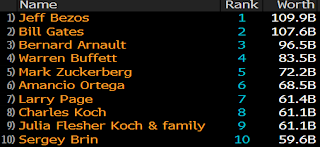Take the red pill

I am not really sure if we really appreciate the true brilliance of the The Wachowsky brothers' The Matrix . Its prescience was uncanny. In 1999, they dreamed up a world in which humans were harvested for their energy, for the benefit of machines. A sentient, all-encompassing machine--originally created by humans-- developed a sense of self-interest and built an illusory world available solely to the sensory perceptions of their captive slaves, who were entertained by such illusion and kept in apocalyptic-looking pods --hooked-up to devices that fed the machine with energy. "Reality" was simply too shiny. Too engaging. Too real to look away from. You needed to take the red pill to wake up . At the time --and up until very recently-- my idea of it all was that The Matrix was just a very sophisticated criticism of Capitalism. A " call to arms " of sorts to all nine-to-fivers who despised their monotonous jobs, felt utterly empty and purposeless, and desperate...



